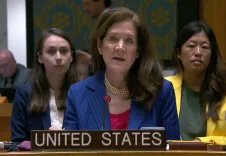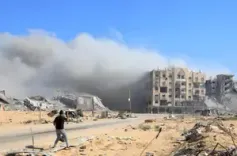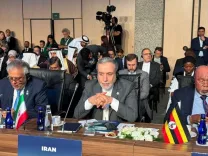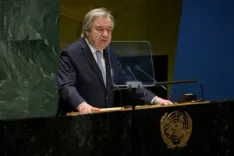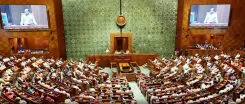Has Russia Expanded Its Entry Ban List in Response to EU Sanctions?
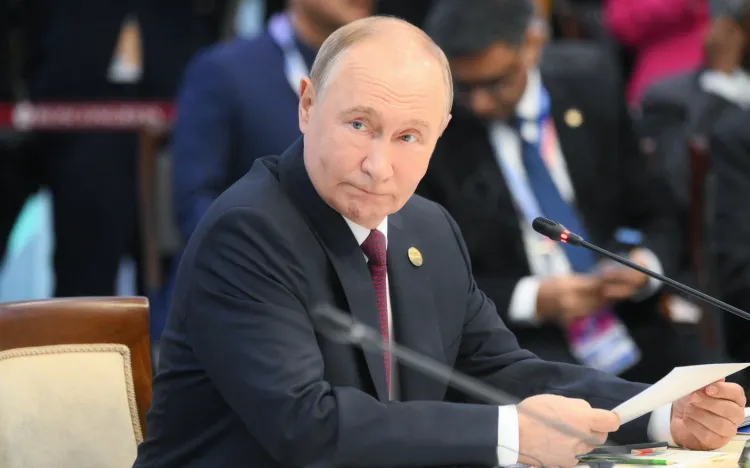
Synopsis
Key Takeaways
- Russia's entry ban list has expanded significantly.
- The ban targets European officials and individuals involved in anti-Russian activities.
- Russia asserts its stance against EU sanctions, emphasizing its national interests.
- Further EU sanctions will result in a timely Russian response.
- The geopolitical landscape remains tense amid these developments.
Moscow, July 22 (NationPress) In a notable move, Russia has markedly expanded its entry ban list, primarily targeting European officials, as a direct reaction to the European Union's recent sanctions packages 17 and 18, according to a statement from the Russian Foreign Ministry issued on Tuesday.
The Council of the European Union approved these sanctions on May 20 and July 18, in light of Russia's ongoing invasion of Ukraine.
"In response to these unfriendly actions, Russia has broadened the list of officials from European institutions, EU member states, and several European countries that adhere to Brussels' anti-Russian policy, who are prohibited from entering Russia under Federal Law 114-FZ 'On the Procedure of Exiting and Entering the Russian Federation' effective August 15, 1996," the statement articulated.
As per the Russian Foreign Ministry, this includes citizens from EU member states and other Western nations working within security, governmental, and commercial sectors, who are implicated in providing military assistance to Kyiv, facilitating the delivery of dual-use products to Ukraine, undermining Russia's territorial integrity, and obstructing the movement of Russian vessels and cargo in the Baltic Sea.
Moreover, the blacklist extends to officials in EU institutions and governmental bodies of EU nations, who are involved in the persecution of Russian officials for alleged "illegal arrests" and the removal of individuals from Ukrainian territories.
In addition, the ban also encompasses individuals collaborating to establish a "tribunal" against Russian leadership, advocating for the confiscation of Russian state assets for the benefit of the Kyiv regime, and those instigating sanctions against Russia that aim to deteriorate its relations with other nations. This includes civil society activists and members of the academic community known for their anti-Russian rhetoric, as well as lawmakers from EU countries and European Parliament members who supported anti-Russian resolutions and bills, the Russian Foreign Ministry conveyed.
Furthermore, the Ministry stated that "hostile anti-Russian actions cannot affect" Moscow's policy. "Russia will persist in pursuing a strategy to protect its national interests and establish a new, fair world order," the statement highlighted.
The Ministry also asserted that any further sanctions-related actions by the European Union will be met with a timely and suitable response.
According to the Russian Foreign Ministry, the introduction of sanctions showcases that "the European Union continues to impose unilateral restrictions on Russia, which violate international law and undermine the authority of the UN Security Council."
The EU's 18th sanctions package blacklisted over 50 individuals and entities, impacting 22 Russian banks, the Nord Stream gas pipelines, and the Rosneft oil refinery in India. The price cap on Russian oil was lowered from $60 to $47.60 per barrel, while the EU enforced a ban on importing petroleum products derived from Russian oil.

